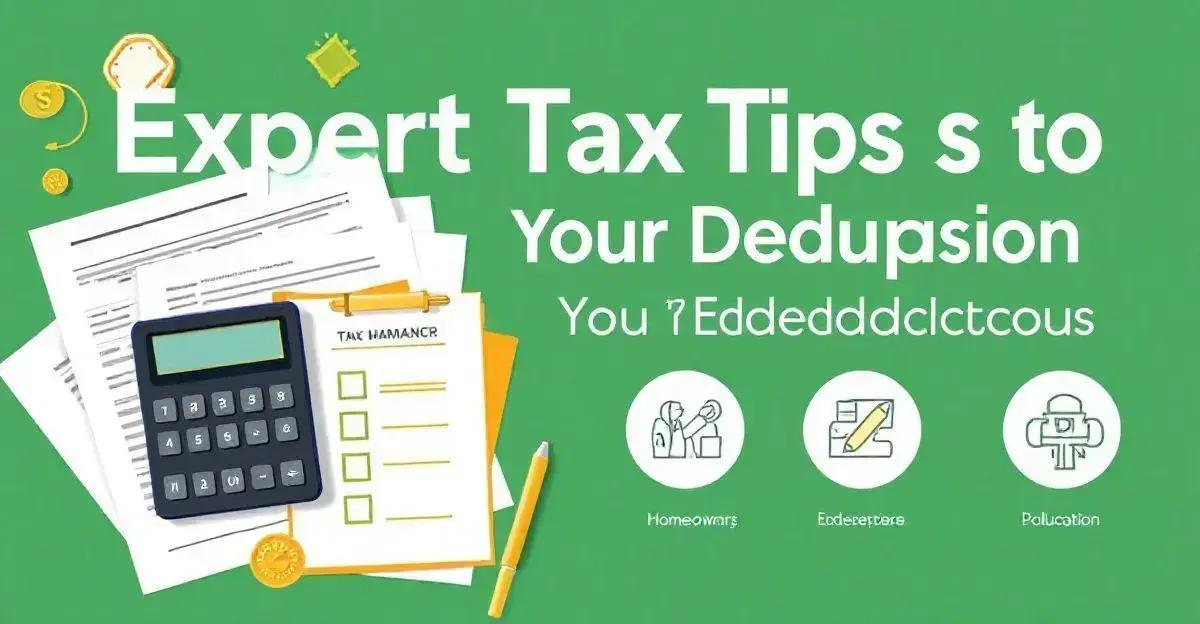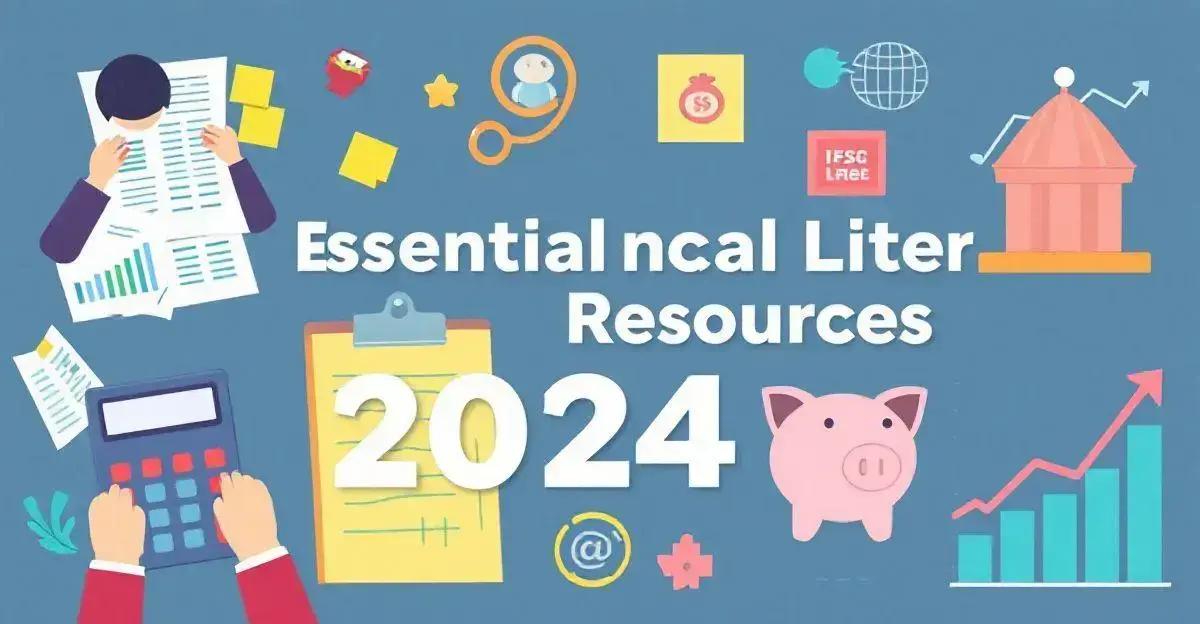Are you missing out on valuable tax deductions? With the ever-changing tax landscape, it’s crucial to stay informed about the latest deductions and credits available.
In this article, we’ll explore the top tax deductions you may be missing out on and provide you with expert tips on how to maximize your deductions.
From home ownership to education expenses, we’ll cover it all.
Whether you’re a business owner or an individual, understanding tax deductions can significantly reduce your taxable income.
Read on to learn how to optimize your deductions and take control of your finances.
A Guide to Maximizing Your Tax Deductions
Maximizing your tax deductions starts with understanding the tax laws and regulations in your country. It’s essential to stay informed about the latest changes and updates to ensure you’re taking advantage of all the deductions available to you. By maximizing your tax deductions, you can reduce your taxable income, lower your tax bill, and increase your take-home pay. In this guide, we’ll walk you through the process of maximizing your tax deductions, from identifying eligible expenses to claiming deductions on your tax return.
You may be missing out on valuable tax deductions without even realizing it. Common tax deductions include charitable donations, mortgage interest, and property taxes. However, there are many more deductions available, such as the child tax credit, education expenses, and retirement savings contributions. In this section, we’ll explore the common tax deductions you may be missing out on and provide you with expert tips on how to claim them.
As a homeowner or renter, you may be eligible for various tax deductions on your primary residence. This includes mortgage interest, property taxes, and home improvements. Additionally, you may be able to claim a mortgage interest deduction on your primary residence or a second home. In this section, we’ll provide you with a comprehensive guide to tax deductions for homeowners and renters.
Tax credits and deductions can be complex and confusing, but understanding them is essential to minimizing your tax liability. In this section, we’ll explain the differences between tax credits and deductions, how to claim them, and provide you with expert tips on how to optimize your tax credits and deductions.
As a business owner, you may be eligible for various tax deductions on your business expenses. This includes deductions on equipment, supplies, and travel expenses. In this section, we’ll provide you with a comprehensive guide to maximizing your tax deductions for business, including expert tips on how to claim deductions and avoid common mistakes.
Tax deductions for education and healthcare expenses can help you save thousands of dollars on your tax bill. This includes deductions on tuition fees, education expenses, and medical expenses. In this section, we’ll provide you with a comprehensive guide to tax deductions for education and healthcare, including expert tips on how to claim deductions and avoid common mistakes.
Common Tax Deductions You May be Missing Out On
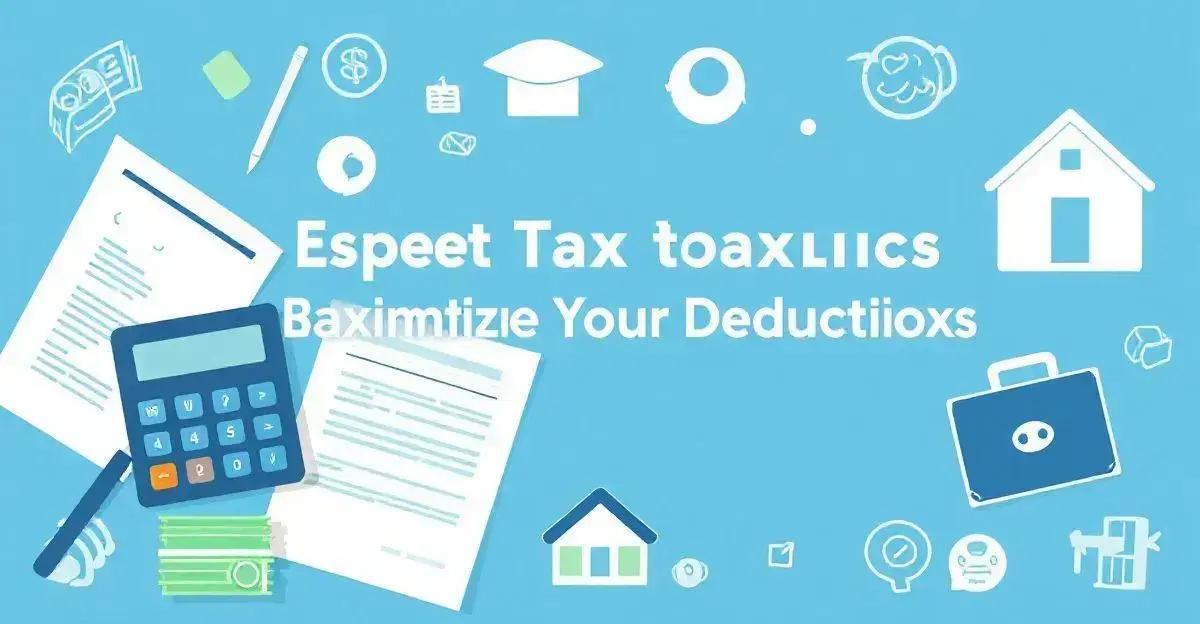
You may be eligible for more tax deductions than you think. In addition to the standard deductions, there are several common tax deductions that you may be missing out on. These include charitable donations, mortgage interest, and property taxes. It’s essential to stay informed about the latest changes and updates to ensure you’re taking advantage of all the deductions available to you.
Deductions for Homeowners
Mortgage interest and property taxes are two of the most common tax deductions for homeowners. The mortgage interest deduction allows you to deduct the interest paid on your mortgage from your taxable income. The property tax deduction allows you to deduct the property taxes paid on your primary residence.
Deductions for Renters
Renters can also take advantage of several tax deductions. These include deductions for mortgage interest and property taxes, as well as deductions for rent payments. The mortgage interest deduction allows you to deduct the interest paid on your mortgage from your taxable income. The property tax deduction allows you to deduct the property taxes paid on your primary residence.
Deductions for Business
Business owners can also take advantage of several tax deductions. These include deductions for business expenses, such as equipment and supplies, as well as deductions for travel expenses. The business expense deduction allows you to deduct the cost of business expenses from your taxable income.
Tax Deductions for Homeowners and Renters
If you’re a homeowner or renter, you may be eligible for several tax deductions on your primary residence. These include mortgage interest, property taxes, and home improvements. Mortgage interest and property taxes are two of the most common tax deductions for homeowners. The mortgage interest deduction allows you to deduct the interest paid on your mortgage from your taxable income. The property tax deduction allows you to deduct the property taxes paid on your primary residence.
Homeowners can also claim a mortgage interest deduction on their primary residence or a second home. This can be a significant deduction, especially for homeowners who have high-interest mortgages or live in areas with high property taxes.
Renters can also take advantage of several tax deductions. These include deductions for rent payments and utilities. The rent payment deduction allows you to deduct the cost of rent from your taxable income. The utility deduction allows you to deduct the cost of utilities, such as electricity and water, from your taxable income.
Understanding Tax Credits and Deductions
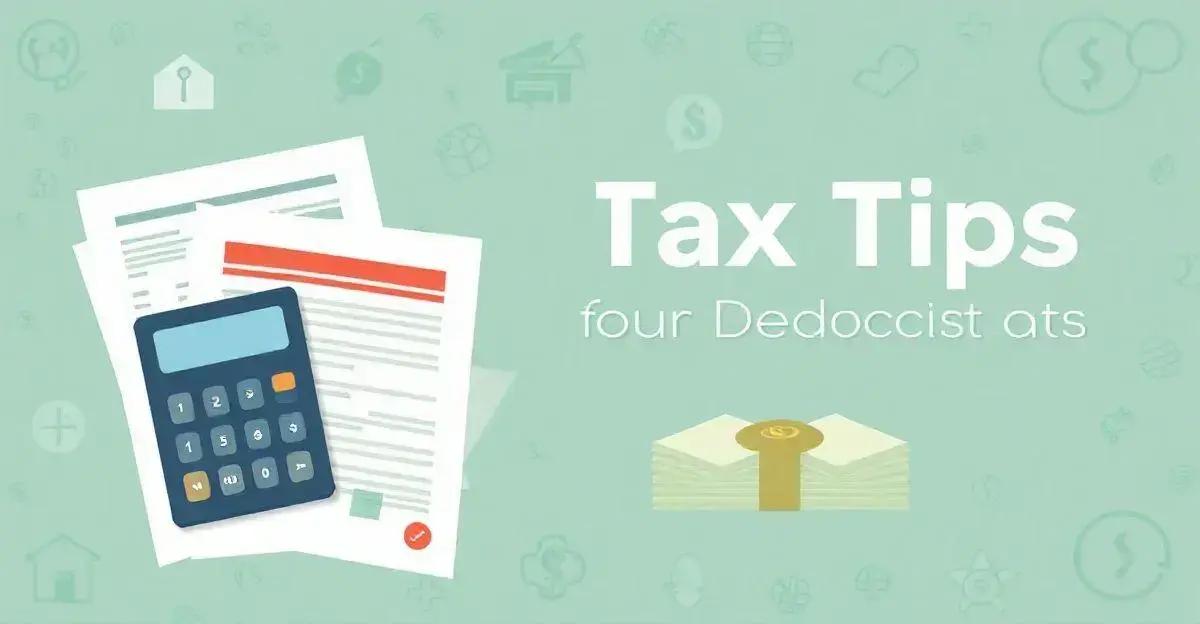
Tax credits and deductions are two of the most valuable tools in your tax planning arsenal. Understanding how they work and how to claim them can help you save thousands of dollars on your tax bill.
A tax credit is a dollar-for-dollar reduction in your tax liability, while a tax deduction reduces your taxable income. The IRS offers a wide range of tax credits and deductions, including the Earned Income Tax Credit (EITC), Child Tax Credit, and Mortgage Interest Deduction.
How to Claim Tax Credits and Deductions
To claim tax credits and deductions, you’ll need to file Form 1040 and attach Schedule A. You’ll also need to keep track of your eligible expenses and calculate your deductions.
Some common tax credits and deductions include:
- Earned Income Tax Credit (EITC): This credit is designed to help low- and moderate-income working individuals and families.
- Child Tax Credit: This credit is designed to help families with children.
- Mortgage Interest Deduction: This deduction allows homeowners to deduct the interest paid on their mortgage from their taxable income.
- Charitable Donations: Donations to qualified charitable organizations can be deducted from your taxable income.
Maximizing Your Tax Deductions for Business
As a business owner, you may be eligible for several tax deductions that can help reduce your taxable income and lower your tax bill. These deductions include expenses related to equipment, supplies, and travel.
Equipment Deduction: The equipment deduction allows you to deduct the cost of business equipment, such as computers, software, and machinery, from your taxable income.
Supplies Deduction: The supplies deduction allows you to deduct the cost of business supplies, such as office supplies and inventory, from your taxable income.
Travel Deduction: The travel deduction allows you to deduct the cost of business travel, including transportation, lodging, and meals, from your taxable income.
Steps to Maximize Your Business Tax Deductions
1. Keep Accurate Records: Keep detailed records of all business expenses, including receipts, invoices, and bank statements.
2. Claim All Eligible Expenses: Claim all eligible expenses, including those that may seem small or insignificant.
3. Consult a Tax Professional: Consult a tax professional to ensure you are taking advantage of all eligible deductions and credits.
Tax Deductions for Education and Healthcare
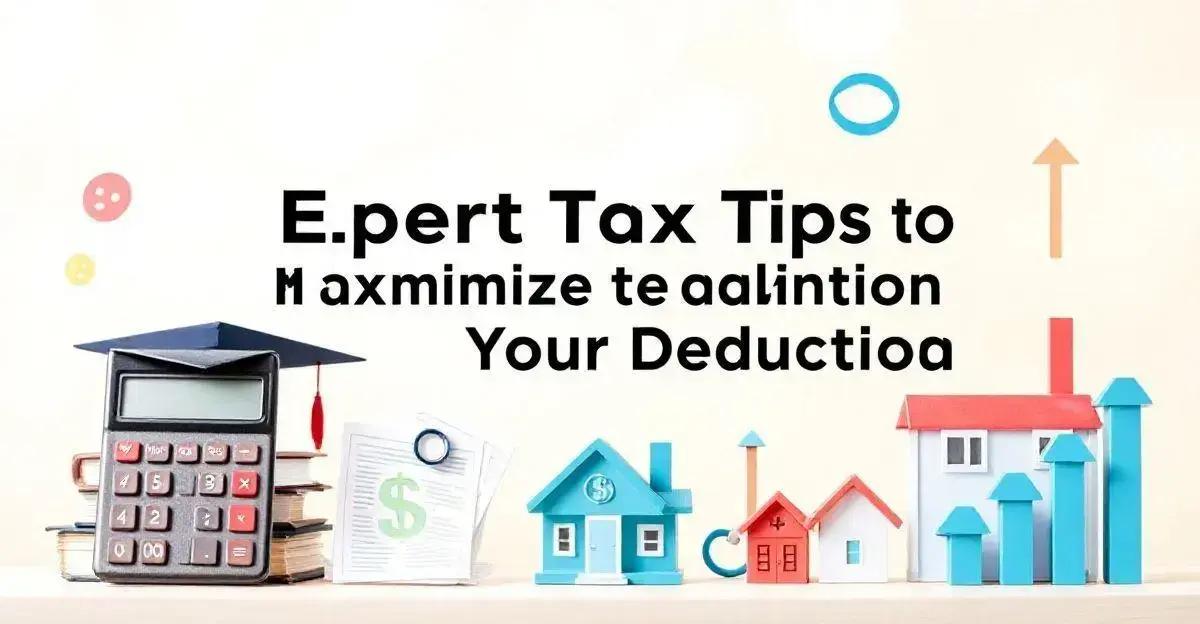
Tax deductions for education and healthcare expenses can help you save money on your tax bill. These deductions include expenses related to tuition fees, education-related expenses, and medical expenses.
Tuition Fee Deduction: The tuition fee deduction allows you to deduct the cost of tuition fees from your taxable income. This deduction is available for students who are pursuing higher education.
Education-Related Expenses Deduction: The education-related expenses deduction allows you to deduct the cost of education-related expenses, such as textbooks, supplies, and equipment, from your taxable income.
Medical Expense Deduction: The medical expense deduction allows you to deduct the cost of medical expenses, such as doctor visits, prescription medication, and hospital stays, from your taxable income.
Steps to Claim Tax Deductions for Education and Healthcare
1. Keep Accurate Records: Keep detailed records of all education and healthcare expenses, including receipts, invoices, and bank statements.
2. Claim All Eligible Expenses: Claim all eligible expenses, including those that may seem small or insignificant.
3. Consult a Tax Professional: Consult a tax professional to ensure you are taking advantage of all eligible deductions and credits.
Frequently Asked Questions about Tax Deductions
What are tax deductions and how do they work?
Tax deductions are amounts that can be subtracted from your taxable income, reducing your tax liability. They can be claimed for various expenses, such as charitable donations, mortgage interest, and business expenses.
How do I claim tax deductions?
To claim tax deductions, you must keep accurate records of your expenses and fill out the necessary tax forms. Consult a tax professional to ensure you are taking advantage of all eligible deductions and credits.
What are some common tax deductions?
Some common tax deductions include mortgage interest, charitable donations, business expenses, and education-related expenses. Consult the IRS website for a comprehensive list of eligible deductions.
How can I maximize my tax deductions?
To maximize your tax deductions, keep accurate records, claim all eligible expenses, and consult a tax professional. Additionally, consider itemizing your deductions instead of taking the standard deduction.
What are tax credits and how do they work?
Tax credits are dollar-for-dollar reductions in your tax liability. They can be claimed for various expenses, such as the Earned Income Tax Credit, Child Tax Credit, and education-related expenses.
How do I claim tax credits?
To claim tax credits, you must fill out the necessary tax forms and provide supporting documentation. Consult a tax professional to ensure you are taking advantage of all eligible credits.
What are some common tax credits?
Some common tax credits include the Earned Income Tax Credit, Child Tax Credit, education-related credits, and business tax credits. Consult the IRS website for a comprehensive list of eligible credits.
How can I maximize my tax credits?
To maximize your tax credits, claim all eligible credits, keep accurate records, and consult a tax professional. Additionally, consider consulting with a tax professional to ensure you are taking advantage of all eligible credits.

